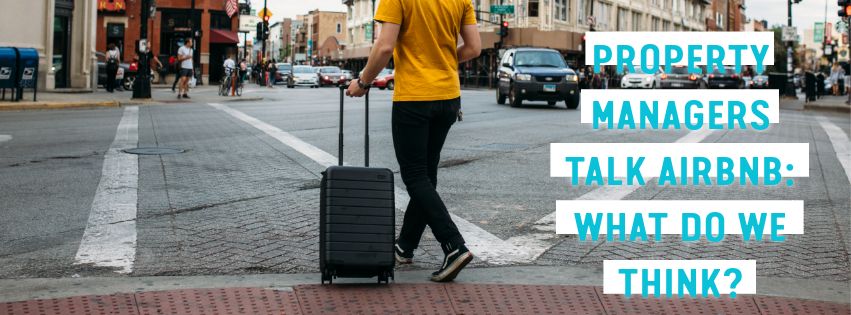An idea that many thought would fall flat has changed the face of the real estate and holiday accommodation market, becoming a household name in the process – we’re of course talking about Airbnb. Having shot to popularity since its launch in 2008, Airbnb is now home to more than 4 million property listings. So, what do team Think Property & Co think of all this disruption? We’re so glad you asked…
Airbnb is one of the biggest technological disruptors of the generation. A brand name that has managed to establish itself as a globally-recognised term in less than 10 years, Airbnb has definitely changed the way people lease property – forever.
That’s really the most important thing to know about Airbnb. It’s here to stay. Whether it will stay in its current form nobody knows – but what the real estate and accommodation categories have experienced is an irreversible change to the way consumers interact with their offering
The Changing Tenant
Landlords are increasingly attracted to the ‘best of both worlds’ offering presented by Airbnb. They consider they can lease their asset when they’re away or have no need of it, and have it back swiftly when required.
Travelers no longer fork out hundreds and hundreds of dollars per night to stay at faceless hotels with facilities they don’t need – they’re opting for Airbnbs and a more homey, local cultural experience. The company’s tagline, ‘Belong Anywhere’, is an earnest representation of the change their sophisticated app has pioneered. The business has empowered consumers to take control. Tenants can live anywhere in the world at the click of a button – and property managers need to start accepting the new paradigm of the share economy.
Younger tenants value flexibility in all aspects of their lives – including living arrangements. They’re working for themselves or moving jobs regularly, and many are operating a ‘side hustle’ that makes mobility important. Many wish to stay in one place for 6-12 months rather than taking on longer-term leases – Should landlords offer flexibility with lease terms? More professional share households are emerging, facilitated by active groups on social media. Fairy Floss Real Estate on Facebook acts as a marketplace for rooms available, with tenants actively subleasing.

Understanding the Differences Between Short and Long Term Leasing
Once landlords and property managers understand the needs of today’s tenant, they must consider how their property will work best in this new leasing economy. There is no value in simply switching to a short-term Airbnb style leasing arrangement without proper research and investment.
Short term accommodation properties must be furnished to a high standard, as the more aesthetically pleasing your property is, the more interest you’ll attract. Enhance your chances of short term success by committing to new furniture and amenities to enhance your guests’ experience, as premium reviews mean better returns. Our fast-paced and competitive economy means that every consumer experience is compared with the best we’ve had, so it’s essential that landlords and PMs become ‘experts in identifying pain’, says Macquarie Bank. By actively seeking small problems your guests might have and addressing them, you stay abreast of barriers to your property’s success.
Look at your property and its suitability as a short term let. Is it within walking distance to amenities and transport? Is it part of a body corporate? Is it close to an airport or major transport interchange? Are other landlords in the area leasing short term? The responses to these questions will help to inform whether your property is suited to a short term leasing model, and a property manager well-versed in this new style of leasing will be able to assist you.
Short Term Rentals Still Need Support
In Bondi, short term lease properties have dominated the rental market, with over 7000 of them in play. Property managers have had to adapt their business model to support this new wave of landlord and tenant – and that’s exactly what property managers everywhere need to be doing. Embracing change is the way forward. Uber and Airbnb have permanently changed the leasing economy – it’s our role as property managers to continue to facilitate the needs of landlords and tenants in this new world.
Landlords – don’t neglect your need for an experienced property manager if you do opt for a short term leasing arrangement. A property manager’s support will be invaluable when navigating this new, ‘high care’ version of leasing. Another essential factor to remember is insurance: your standard landlord insurance will no longer cover you for short term arrangements, so look into this before jumping ship to short term.
Have any more questions about short term leasing? Contact the experienced team at Think Property & Co.

